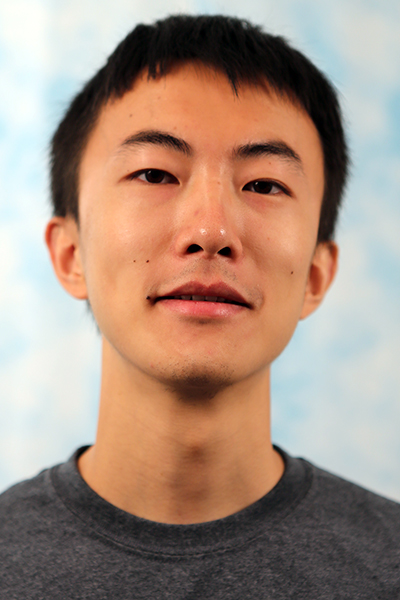PhD Speaking Qualifier
Carnegie Mellon University
Speeding Up Search-based Motion Planning Via Conservative Heuristics
Abstract: Weighted A* search (wA*) is a popular tool for robot motion-planning. Its efficiency however depends on the quality of heuristic function used. In fact, it has been shown that the correlation between the heuristic function and the true cost-to-goal significantly affects the efficiency of the search, when used with a large weight on the [...]
Carnegie Mellon University
Toward a New Type of Agile and Dexterous Mobile Manipulator
Abstract: Mobile robot bases have been developed over many decades, but only recently have researchers added arms to these bases, opening up the rich field of mobile manipulation. Most of these robots either need wide, heavy, statically-stable bases that may or may not be omnidirectional to support the arms and provide stability. Such robot bases, [...]
Carnegie Mellon University
Dexterous Manipulation via Simple Robot Hands
Abstract: Most of the industrial robotic applications nowadays can only deal with pick-and-place manipulation, in which fixed graspings are the only interactions between the object and the robot hand. Simple hands, such as pinch grippers and suction cups, suffice to accomplish such tasks. However, there exist many unsolved automation problems where more dexterous manipulations are [...]
Carnegie Mellon University
Contrastive View Predictive Learning with 3D-Bottlenecked RNNs
Abstract: In this talk, I will describe our recent work on neural architectures for visual recognition, which use 3D not as input nor as the desired output space, but rather as the bottleneck of the learned representations. We consider embodied agents moving in otherwise static worlds equipped with these architectures; they learn 3D visual feature [...]
Toward Intent Recognition through Nonverbal Behaviors in Assistive Co-Manipulation
Abstract: Robots are becoming more versatile, increasing the available opportunities to use them in situations that aid people in everyday tasks. For example, recent research has investigated robot manipulators for assisting people with motor impairments in activities of daily living such as eating a meal. To form successful collaborations in these interactions, researchers need to [...]
Carnegie Mellon University
Rotational Distributions for Pose Estimation
Abstract: For robots to operate robustly in the real world, they should be aware of their uncertainty, particularly when estimating the position and orientation, or pose, of objects. This uncertainty can be caused by many factors, such as occlusions, poor lighting, or object symmetry. These factors can naturally induce an inherent ambiguity in terms of [...]
Carnegie Mellon University
Manipulation Planning using Pushing or Pulling Primitives
Abstract: Humans manipulate objects using a wide range of actions, such as grasping, pushing, pulling, in-hand rolling, and more. This observation has lead to much research about modeling and learning individual manipulation actions. To better understand the impact of action models on planning and executing manipulation actions, we applied manipulation planning with pushing and pulling [...]
Carnegie Mellon University
Scaling Up Deep Learning with Model and Algorithm Awareness
Abstract: In recent years, the pace of innovations in the fields of deep learning has accelerated. To cope with the sheer computational complexity of training large ML models on large datasets, researchers in the systems and ML communities have created software systems that parallelize training algorithms over multiple CPUs or GPUs (multi-device parallelism), or even [...]
Carnegie Mellon University
Online and Consistent Occupancy Grid Mapping
Abstract: Actively exploring and mapping an unknown environment requires integration of both simultaneous localization and mapping (SLAM) and path planning methods. Path planning relies on a map that contains free and occupied space information and is efficient to query, while the role of SLAM is to keep the map consistent as new measurements are continuously [...]
Carnegie Mellon University
A Planning Framework for Persistent, Multi-UAV Coverage with Global Deconfliction
Abstract: Planning for multi-robot coverage seeks to determine collision-free paths for a fleet of robots, enabling them to collectively observe points of interest in an environment. Persistent coverage is a variant of traditional coverage where coverage-levels in the environment decay over time. Thus, robots have to continuously revisit parts of the environment to maintain a [...]









